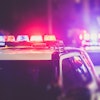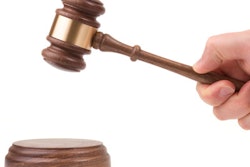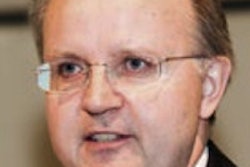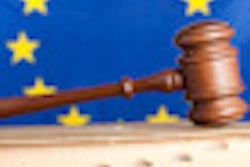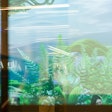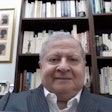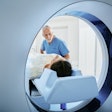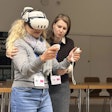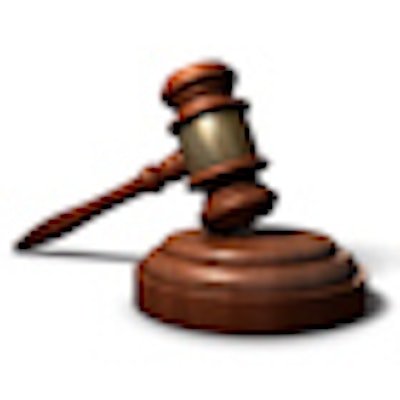
Cases of personal injury and medical negligence attract ever more media coverage. As the tendency to resort to legal action grows across Europe, increasing numbers of medical doctors are being called on by instructing parties to testify as expert witnesses, and radiological experts are no exception. They find themselves helping the judge, barristers, and solicitors to form a view of the evidence and the case by providing an unbiased and reliable source of knowledge on technical matters within their specific field of expertise.
In the U.K., however, recent legislative changes mean that expert witnesses are now liable to be sued if the opinions they voice turn out to be biased or erroneous, according to Dr. Stephen Davies, president of the British Institute of Radiology and consultant radiologist for Cwm Taf Health Board in South Wales. Radiologists entering the medicolegal arena need to be fully aware of the situation in their own countries.
 The radiology report produced by the expert must be addressed to the court, regardless of whether the expert is instructed by the claimant or the defendant. It must also identify differences of opinion, according to Dr. Stephen Davies.
The radiology report produced by the expert must be addressed to the court, regardless of whether the expert is instructed by the claimant or the defendant. It must also identify differences of opinion, according to Dr. Stephen Davies.
"Radiologists putting themselves up as experts will wish to have gained sufficient clinical experience to be able to give a balanced opinion which is objective and impartial. That can take many years," he said.
An objective, impartial, and well-researched opinion will help claimant solicitors, in particular, to decide whether a case has sufficient merit to proceed. In U.K. cases of alleged mismanagement by a hospital resulting in a breach of duty to care, for example, the events in question must meet two conditions: Did the standard of care fall below a reasonable acceptable standard, and did this slip lead to harm to a patient?
If a case has enough evidence to merit pursuing, the expert witness may be instructed by a party. However, the report that the expert produces must be addressed to the court regardless of whether he or she is instructed by the claimant or the defendant. The report must also identify differences of opinion.
"What is important is that radiologists understand their duties to the court. To understand this, they are well advised to seek appropriate training. If they don't, they will find it hard to effectively assist the court," Davies said. "Good dialogue with the instructing solicitor is vital when clarifying Instructions," he added.
Several organizations, both charitable and commercial, provide training in the core process and cross-examination by barristers and in court procedures. Appropriate training also lies in understanding and applying Civil Procedure Rule 35, which lays out the framework for experts in England and Wales. Experts are required to sign a declaration stating that they understand and have followed these rules.
Part 35 of the civil procedure rules and practice direction (the explanatory notes on the rules) was the product of the 1999 Woolf reforms and subsequent revisions, these the result of a wide-ranging review aimed at streamlining the legal process and curbing costs. Because once court starts, costs rise dramatically and any awards get absorbed in litigation costs. The Woolf reforms aimed to make civil proceedings less partisan through the early sharing and expeditious treatment of evidence in cases, encouraging the resolution of matters before court. In civil cases in England and Wales, radiological reports are typically exchanged as part of the preliminary process to encourage settlement -- and radiologists rarely go to court. Davies himself has only been to court for a couple of cases, which were criminal ones.
While the civil judicial systems in England and Wales are comparable, they are different in Ireland, Scotland, and Northern Ireland. Radiologists in Ireland are more likely to end up on the court steps owing to later exchange of evidence, he noted.
For the radiologists themselves, the nonmedical environment of the courts is no more challenging than it is for other doctors: Radiologists who are used to standing up in front of other professionals to present cases can develop skills that are useful in court, according to Davies.
The main pitfall for radiology expert witnesses is to act outside their area of expertise and forget their prime duty to the court: While the expert radiologist can provide an opinion on the breach of duty, such as whether a fracture was missed, it is the surgeon who provides the opinion of whether this missed fracture resulted in harm, he said.
"One must ensure one operates within one's specific subspecialty area," Davies commented. "At work, expertise may overlap; musculoskeletal radiologists may build up a working knowledge of orthopedics, for example. But using such knowledge and commenting on orthopedic practice in a legal context must be avoided."
In England and Wales, expert witnesses can be sued when they fail in their duties to the court. The 2011 civil case Jones v. Kaney involved a psychology expert witness in a personal injury case who was sued by the injured claimant for negligence, which the latter asserted resulted in a much lower settlement. This case led to the loss of immunity for expert witnesses, reversing a line of authority that dated back 400 years.
"The message is 'be properly trained,' stay within your expertise, and adopt a balanced view. Acknowledge other recognized opinions -- ensure they are made clear," Davies said. "Also be well-prepared -- be up-to-date and well-read within your discipline. You have to make it clear what you do know and what you don't."
Editor's note: If you have acted as an expert witness, we are keen to hear about your own experiences. Do they differ from those of Dr. Davies? What advice do you have for others? Please post a comment in our Forums, or send an email to Editor-in-Chief Philip Ward.


